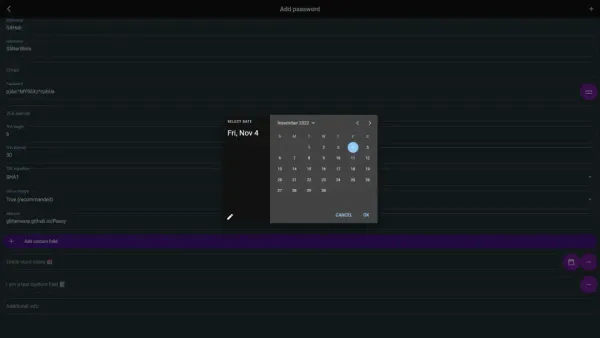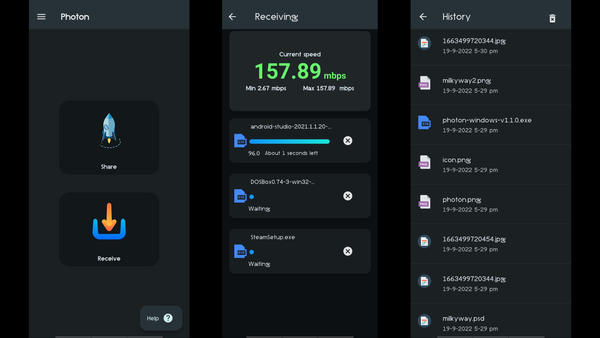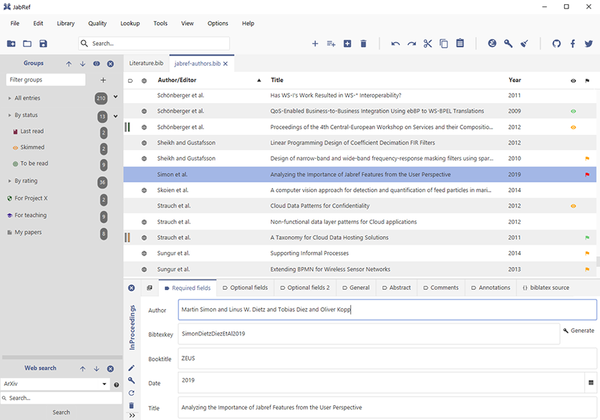DAR - Disk ARchive: Take a Secure Encrypted Archives For Easy Backup and Restore
Table of Content
DAR is a powerful command-line backup and archiving tool that offers a wide range of features. It uses selective compression, which means that it does not compress files that are already compressed.
In addition, it provides strong encryption to ensure the security of your archived data. DAR also has the ability to split an archive into different files of a specified size, making it easy to manage large archives.
One of the key advantages of DAR is its support for on-the-fly hashing. This means that it can calculate and verify the integrity of your data as it is being archived, ensuring that no data corruption occurs during the process.
DAR also supports differential backup, allowing you to only backup the changes that have occurred since the last backup, saving both time and storage space.
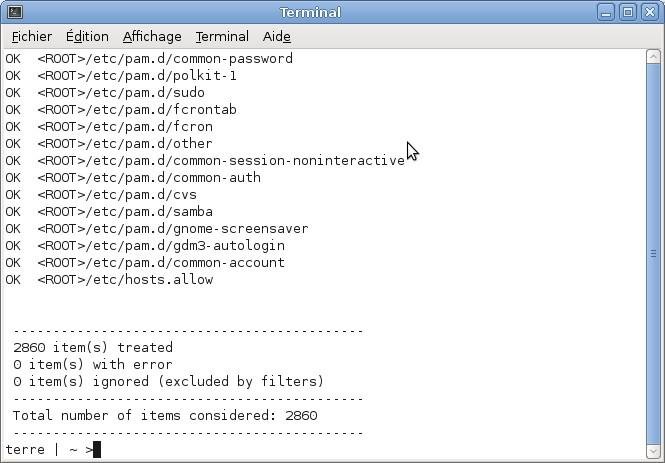
Not only does DAR support local storage options, but it also offers support for remote cloud storage. It can utilize the FTP and SFTP protocols to backup your data to a remote cloud storage provider, giving you the flexibility to choose where your data is stored.
Another impressive feature of DAR is its ability to quickly restore individual files from a large, compressed, and encrypted archive. Even if the archive is located on a remote cloud storage, DAR only fetches the necessary data to perform the restoration, ensuring efficient and speedy file retrieval.
When it comes to preserving your data, DAR does an excellent job. It saves all UNIX inode types and takes care of hard links and sparse files. It is also capable of handling Extended Attributes, such as MacOS X file forks, Linux ACL, SELinux tags, and user attributes. In addition, DAR supports some Filesystem Specific Attributes, including Linux ext2/3/4 and Mac OS X HFS+.
With its comprehensive set of features and robust capabilities, DAR is a reliable choice for your backup and archiving needs.
Features
- Archiving/backup
- Integrated compression (gzip, bzip2, lzo, xz/lzma) and encryption
- Public key encryption (PGP) and strong encryption (AES, twofish, blowfish, serpent, camellia)
- Sliced archive in files of requested size
- Arbitrarily large file backup and archive creation
- Full/incremental/differential/decremental backup
- binary delta available when performing incremental/differential backups
- Handle any type of inode (directory, plain files, special devices, symlinks, named pipes, sockets, doors...)
- Hardlink support for plain files, special devies, softlinks, named pipes,
- Sparse file detection and restoration
- Extended Attributes support (including Linux ACL and MacOS X File Forks)
- Fast restoration of files even from compressed and/or encrypted archive
- native sftp and ftp protocols support to use remote cloud storage
- Support for tape (sequential reading mode)
- Table contents isolation for use as differential backup or if archive corruption occurred
- On-fly md5, sha1 or sha512 hash file generation for each archive slice
- Hooks for user's scripts between slices
- Hooks for action before and after saving user defined directory of file (suitable for live database backup)
- Detection of file change during backup, possibility to retry a failed file up to a given number times
- Archive merging with default or fine tunable overwriting policy
- Dry-run execution mode
- User comments in archive header
- Archive reslicing without decompression or decryption
- Filesystem Specific Attributes supports (ext2/3/4, HFS+)
- Backup/restoration over ssh or netcat
- Integrated archive protection and repair using Parchive
- truncated archive repairing feature (due to lack of disk space, system crash, power outage)
DarGUI
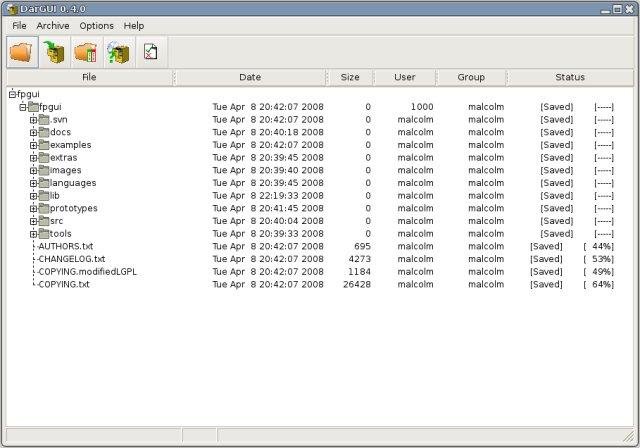
DarGUI is a front end to the Disk ARchive (Dar) program for Linux and Windows (64 bit). It provides a simple way to create and restore backup archives in Dar format.
DarGUI is written in Pascal using FreePascal and the Lazarus IDE.
Platforms
- Cygwin
- Solaris
- Linux
- FreeBSD
- NetBSD
- BSD
- Android
- Windows
- macOS
License
- GNU General Public License version 2.0 (GPLv2)
Resources






